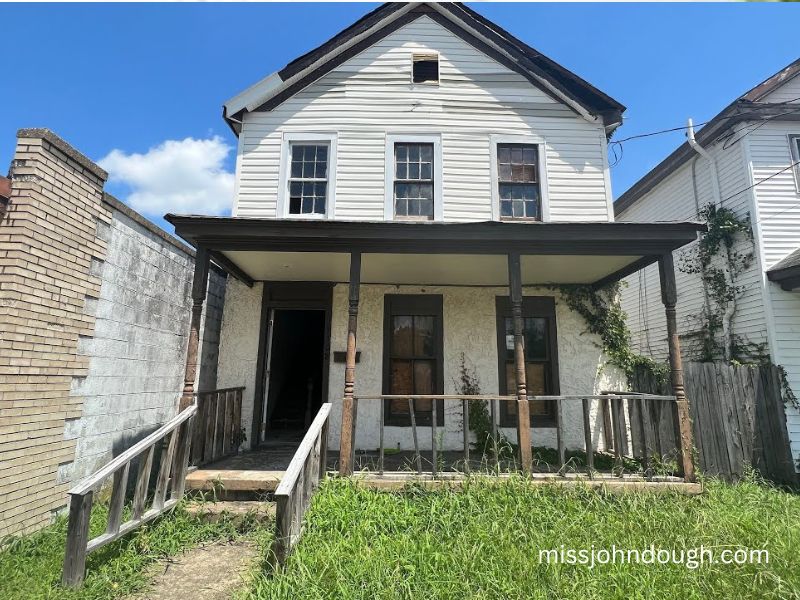Finding a home that meets your needs and budget can be a challenging task, especially when traditional financing options aren’t viable. This is where owner finance houses come into play, providing an alternative route for homebuyers who may struggle to secure a conventional mortgage. In this article, we’ll delve into the world of owner finance houses for sale by owner with a $2,000 down payment, exploring how this financing method works, its benefits, and tips on finding your dream home without breaking the bank.
Understanding Owner Financing
Owner financing is a type of real estate transaction in which the seller provides financing to the buyer directly, instead of a bank or mortgage lender. This arrangement can be highly beneficial for buyers who may not qualify for traditional loans due to credit issues, lack of a substantial down payment, or self-employment income that may not meet bank standards.
In owner financing, the seller acts as the lender, allowing the buyer to make monthly payments directly to them. This arrangement can also result in a quicker and more straightforward purchasing process, as there are often fewer hoops to jump through than with traditional lenders.
The Appeal of $2,000 Down Payment
Many buyers are drawn to the $2,000 down payment option because it lowers the financial barrier to homeownership. For many, saving up for a large down payment can take years, and a $2,000 down payment makes it feasible to enter the housing market sooner rather than later. This approach is particularly appealing to first-time homebuyers or those looking to transition from renting to owning.
With owner financing, sellers may be more flexible regarding down payments, as they have a vested interest in closing the deal. A lower down payment can attract a broader range of buyers, increasing the seller’s chances of selling their property quickly.
Benefits of Owner Finance Houses
1. Easier Qualification Process
One of the most significant advantages of owner financing is the more accessible qualification process. Since the seller is providing the financing, they have the discretion to set their own requirements. This means that buyers with less-than-perfect credit or unstable income may still qualify for a home.
2. Flexible Terms
Owner financing typically allows for more flexible terms than traditional mortgage loans. Sellers and buyers can negotiate interest rates, repayment schedules, and other terms based on their mutual agreement. This flexibility can lead to more favorable conditions for the buyer, including lower interest rates or extended repayment periods.
3. Faster Closing Times
Since owner financing involves fewer parties and less paperwork than traditional financing, the closing process is often much faster. Buyers can move into their new homes without the lengthy waiting period that comes with conventional loans.
4. Potential for Lower Overall Costs
Without the involvement of a bank or mortgage lender, buyers may save on closing costs, loan origination fees, and other associated expenses. This can make purchasing a home through owner financing more affordable in the long run.
Tips for Finding Owner Finance Houses
1. Online Listings
The internet has revolutionized how we search for real estate. Many websites and online platforms cater specifically to owner financing listings. These platforms can help you find owner finance houses available with $2,000 down. Utilizing keywords such as “owner finance houses for sale by owner” and “homes for sale with owner financing” can yield a wealth of options.
2. Local Classifieds
Don’t overlook traditional methods! Local newspapers and classified ads can be a treasure trove of owner financing opportunities. Sellers may choose to advertise their properties in print to reach a more local audience, especially if they’re looking for a quicker sale.
3. Real Estate Agents Specializing in Owner Financing
Some real estate agents specialize in owner financing. These professionals can help you navigate the market and find properties that meet your criteria. They can also provide guidance on negotiating terms with the seller to ensure you get the best deal possible.
4. Networking
Word of mouth can be a powerful tool in the search for owner finance houses. Let friends, family, and colleagues know you’re looking for owner-financed properties. You never know who might have a lead on a home for sale with favorable terms.
Evaluating Owner Finance Houses
When you find a property that interests you, it’s crucial to evaluate it thoroughly. Here are some key factors to consider:
1. Property Condition
Before committing to an owner finance agreement, assess the property’s condition. Are there any significant repairs needed? Consider hiring a home inspector to identify potential issues. This can save you from unexpected expenses down the road.
2. Fair Market Value
Research the fair market value of the property to ensure you’re paying a reasonable price. Compare similar homes in the area and analyze their sale prices. This will help you negotiate effectively and avoid overpaying.
3. Understanding Terms
Take the time to understand the terms of the owner financing agreement. This includes the interest rate, payment schedule, and any potential penalties for late payments. Clear communication with the seller is vital to avoid misunderstandings.
4. Get Everything in Writing
Any agreements made between you and the seller should be documented in writing. This includes the sales price, financing terms, and any contingencies. Having everything documented protects both parties and ensures clarity moving forward.
Potential Pitfalls of Owner Financing
While owner financing can offer numerous advantages, it’s essential to be aware of potential pitfalls:
1. Higher Interest Rates
In some cases, the interest rates offered by sellers may be higher than those available through traditional lenders. This can result in higher overall costs over the life of the loan. It’s crucial to negotiate and shop around to ensure you’re getting a competitive rate.
2. Lack of Regulation
Since owner financing operates outside traditional lending practices, there may be fewer regulations in place. This can lead to unfair terms if not carefully negotiated. Always conduct thorough due diligence and consider consulting with a real estate attorney before finalizing any agreements.
3. Risk of Foreclosure
If the buyer fails to make payments as agreed, the seller may have the right to foreclose on the property, just as a bank would. It’s vital to ensure you can meet the financial obligations before entering into an owner financing agreement.
Conclusion
Owner finance houses for sale by owner with a $2,000 down payment provide an excellent opportunity for those looking to enter the housing market without the challenges associated with traditional financing. By understanding the ins and outs of owner financing, evaluating properties carefully, and negotiating terms wisely, buyers can find a home that meets their needs and budget.
As you embark on your journey to homeownership, remember to stay informed, utilize available resources, and keep an open line of communication with sellers. With diligence and research, your dream of owning a home can become a reality through owner financing.


